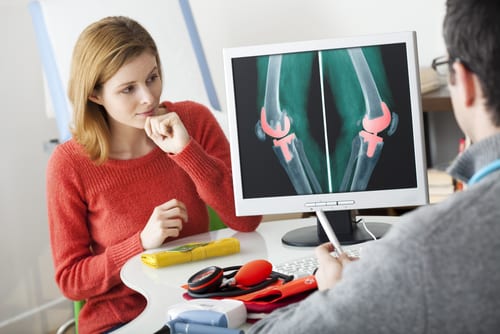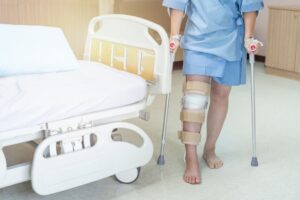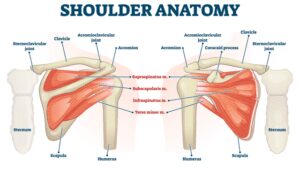Total Joint Replacement
- Where do I go after surgery?
- After joint replacement, you may require some degree of assistance from nursing, physical therapy, or occupational therapy to allow you to be independent in your home. Your support system, degree of impairment, home environment, and medical stability after surgery will dictate if you are able to go home immediately after surgery or if a temporary rehab stay will be more appropriate.
- What do I do if my bathroom/bedroom is on the second floor?
- If you are going to be recovering in a rehab, you should be ready to do stairs in order to access the upper level of your home before you leave the facility. If you are going right home and are unable to get up to the second floor, you will likely receive some physical therapy in the home to help you work on these skills. It can be helpful to set up a “bedroom” on the first floor with a couch, recliner, or small bed if available, and a wash-up station close by for easy access.
- What If I live alone and will need help after surgery?
- Nursing, physical therapy, and occupational therapy are services that will be accessible to you if you are unable to leave the house after surgery. Speak with your nurse case manager or social worker overseeing your case to coordinate these services.
- Do I need to tell any medical providers about my surgery in the future?
- Yes! Always give your medical providers a thorough surgical history. It is especially important when seeing a dentist that you make them aware of any joint replacement surgeries you have had. You should be placed on an antibiotic before any dental procedures to prevent against infection.
- Is it normal to be sore, swollen, and red?
- Inflammation is a normal part of your body’s natural healing response, so it is normal so have swelling, soreness, warmth, and some redness after surgery. Excessive heat, pain, swelling, and streaking redness around a surgical site can be signs of infection. If you are concerned about your symptoms or experience new onset shortness of breath, call your surgeon. In some cases, blood clots can develop after surgery, which require medical attention.
- What should I ask/provide my doctor before surgery?
- Medication List
- It’s always important that your doctor has your list of medications. If there are any medications you need to stop taking prior to surgery, like blood thinners, they will let you know.
- Will I need physical therapy, and how soon can I start?
- Depending on the surgery, you may or may not need physical therapy to get back to daily and recreational activities
- Is there a post-operative protocol you would like my physical therapist to follow?
- Some surgeons have very specific instructions after surgery for the PT to follow. They may provide you with a protocol to take with you to your first PT appointment
- When can I stop wearing compression garments?
- For total knee and hip replacements, your surgeon may want you to wear compression socks for several weeks after surgery. Depending on your medical history, this could be anywhere from 2-6 weeks.
- If you think you may need parking accommodation, ask the front office staff for necessary paperwork for temporary handicap parking. Your surgeon will fill it out.
- When can I drive?
- Medication List
- Should I use ice or heat for soreness and swelling.
- Ice is beneficial to reduce pain and inflammation in 15–30-minute increments. Spend at least 30 minutes between icing to allow tissue temperature to return to normal before icing again. You can continue this cycle as often as you like, making sure there is at least one barrier (clothing, towel, pillowcase) between you and the ice pack to reduce risk of burns. After several week, once surgical pain and swelling has subsided, heat can be used before exercise and to help with achy and stiff joints.
Remember that you also have your BEAT physical therapists available for any additional questions or concerns. We are here for you!!!







